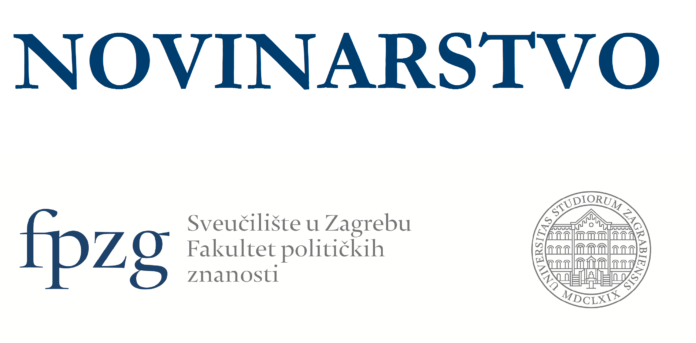Students of journalism at the Faculty of Political Science in Zagreb, gathered in an initiative, have learned that the specialization in radio journalism is being discontinued at the Faculty. They claim that those studying journalism are being treated worse than their political science colleagues, and that the dean’s argumentation is inconsistent, reports N1 television.
For a month now, there has been buzz about the dissatisfaction of students at the Faculty of Political Science after two elective courses were abolished, thereby eliminating the specialization in Radio Journalism that students chose in their third year.
Students are sending a message that, if the dean refuses to talk to them, they are ready to protest.
Regarding the dissatisfaction of students, Roko Silov, a member of the student initiative, spoke to N1, while Andrija Henjak, dean of the FPZG, described his thoughts on the matter in a written response, which we present in its entirety:
“Since the radio specialization is constantly mentioned, it is first necessary to clarify that this is not about a specialization. Namely, a specialization is a special part of the study program that is accredited as such and is conducted as a separate element, the completion of which results in a special diploma, which has its own specific enrollment quota and study program, as well as an implementation plan, and into which students enroll at the beginning of their studies. It is impossible to abolish a specialization without expelling the students who attend it from the study program. The undergraduate and graduate journalism programs are unique study programs that do not have specializations, which can easily be determined on the faculty’s website and which students should know. Here, we are talking about a pair of elective subjects that are taught in the fifth and sixth semesters of study (further clarification follows below) and which constitute a specialization. Therefore, since there was no radio specialization, it could not have been abolished. But neither were individual subjects abolished because a special decision of the faculty council stating that certain subjects are being abolished is required to abolish subjects, and such a decision has never been made, so the subjects have not been abolished.
This year, a pair of elective subjects in radio journalism, Radio Editing, and Fundamentals of Radio Research, will not be taught, one in the fifth and the other in the sixth semester. I would like to point out that these are elective subjects offered as one of five pairs of elective subjects covering radio journalism, television journalism, print journalism, new media, and public relations. A student chooses two of the aforementioned pairs of subjects.
These subjects build upon compulsory subjects that students take in the second year of study, called Basics of Radio, Basics of Television, Basics of Print Media, Radio Journalism, Television Journalism, and Newspaper Writing. All students attend these subjects, and they are regularly taught.
For several years now, a lecturer external to the faculty has been teaching the entire course for the pair of elective subjects Radio Editing and Fundamentals of Radio Expression in a 100% teaching position. The reason for this situation lies in the fact that until this year, the relevant department did not raise the issue of hiring new teachers related to radio content subjects, nor in previous years did it propose hiring any of the permanently employed teachers or collaborators to teach these subjects. No new teachers have been employed for subjects covering radio content for more than two decades.
Until this year, one teacher and one external collaborator taught the subjects covering radio content (two compulsory subjects in the second year and two elective subjects in the third year), and this year, another external collaborator has been added. Just for comparison, five teachers, three external collaborators, one technical collaborator, and at least ten demonstrators are involved in teaching the subjects covering television content. Four teachers, one to two external collaborators, and at least two demonstrators are involved in teaching the subjects covering print media.”
You can read the full text on n1info.hr.








